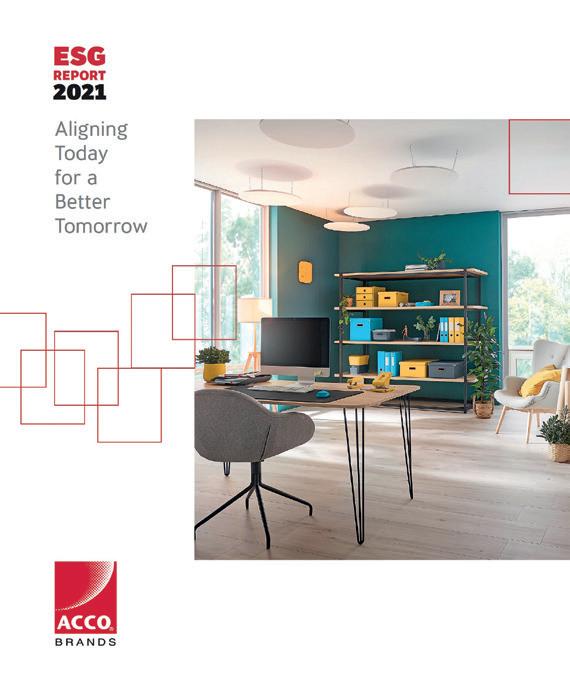3 minute read
Green Thinking News
by OPI
Next Article


Lyreco launches supplier sustainability tool
Lyreco UK recently introduced what it calls its Supplier Sustainability Action Tool (SSAT), designed to understand and support its vendors’ sustainability strategies.
The SSAT has been created in partnership with UK organisation NETpositive Futures and aims to embed supplier engagement via an evidence-based action plan. Lyreco said that completion of the action plan will help drive its suppliers towards a more sustainable and ecologically conscious operation.
The SSAT focuses on four key areas: the circular economy, climate change and environment, diversity and inclusion, and social responsibility. Based on their responses, evidence and the amount of work required to implement certain initiatives, suppliers are then scored on a scale of 1-5.
“This [SSAT] is a huge benefit to us as an organisation to increase the transparency of our supply chain to our customers,” said Andrew Bryers, Head of CSR at Lyreco UK. “We have the strict target that 90% of our products and services need to be sustainable by 2026, but to achieve this Lyreco needs to make sure our suppliers are aligned to our sustainability objectives.”
ODP Business Solutions releases Diverse Supplier catalogue
The B2B arm of The ODP Corporation recently launched its 2022 Diverse Supplier catalogue.
ODP Business Solutions said the catalogue is aimed at helping to connect public and private organisations with a wide range of products offered by certified minority-, women-, disabled-, LGBTQ+- and veteran-owned suppliers and small businesses.
The publication comprises more than 1,400 items from across the business supplies range, including over 600 products with eco-attributes or ecolabels, all sourced from diverse suppliers. In addition to products, the catalogue also features numerous small business success stories.
ACCO publishes 2021 ESG report
In August, ACCO Brands published its ESG Report 2021, which outlines the company’s commitment to environmental, social and governance (ESG), and includes an update on its publicly committed sustainability and diversity goals. In 2020, ACCO committed to achieving three key goals by 2025. These are:
• Increase the energy efficiency in its facilities (factories and warehouses plus offices with over 50 people) by 10% compared to 2019. • Increase the percentage of director-level and above female leaders to 33% globally. • Increase revenue from products certified to third-party environmental and social standards by ten percentage points compared with 2019.
What progress did ACCO make in 2021 on its 2025 goals? Below are some highlights from its ESG report.
Energy:
• As manufacturing and shipments began returning to pre-COVID levels in 2021, total energy consumption increased from 2020, but only by 4%. • At its pencil factory in Lilyhall, UK, engineers completed two projects involving heat exchangers and the wood furnace that lowered the usage of natural gas and electricity.
Together, these changes reduced total energy consumption at the site by more than 11%. • Scope 1 and scope 2 CO2 emissions were down by 24% from 2020 levels. Much of this reduction was due to a decrease in the carbon intensity of energy supplied by electricity providers. Electricity consumption accounts for about 75% of ACCO’s emissions and in 2021 just over 7% of its electricity came from renewable resources.
People:
• In 2021, the percentage of director-level and above female leaders was 30%, up from its 2019 baseline of 27%.
Products:
• In 2019, certified products represented just under 32% of global sales. In 2021, ACCO achieved a 6.1 percentage-point increase in certified product sales for the same categories in its 2019 baseline. This was mainly due to securing certified raw material sources for certain envelopes and paperboard report covers, and achieving a PEFC certification at the Lilyhall pencil facility. • Considering ACCO’s total 2021 sales, which also include video gaming accessories following the acquisition of
PowerA, revenue from certified products increased by 1.4 percentage points compared with the 2019 baseline.


